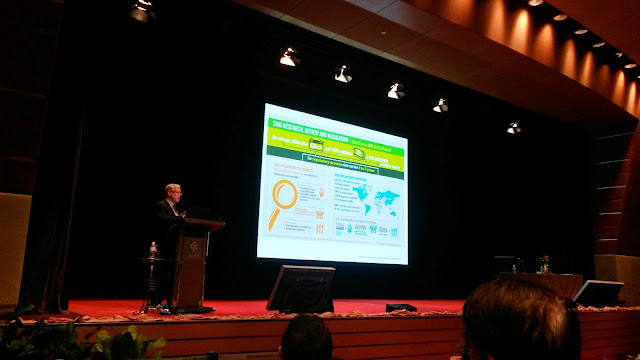22 February 2015: Rubber tappers suffer on price fall, 50:50 split on volume at RM1.90 per kg
As rubber prices fall, a dour Chinese New Year for some BY JAMILAH KAMARUDIN and WONG YU HAN Published: 19 February 2015 10:00 AM On earnings of RM75 a day, how did Lan Siew and his wife prepare for Chinese New Year? They did not. It is unlikely the rubber tapper from Jelebu, in Negri Sembilan, and his family will have meat for their celebrations, as they try to stretch every ringgit following the decline in commodity prices. In his 50s, Lan Siew told The Malaysian Insider on a recent visit to Simpang Pertang in Jelebu, that he had been tapping rubber for more than 10 years but is now hit hard by the massive drop in the global price of rubber to below RM2 per kg.
“With the help of my wife, we share a daily income of RM150 that is split between us and the plantation owners. This means we get only RM75, each of us having earned RM37 for the day," he said. The income he earns from tapping rubber is based on the current price of RM1.90 per kg.
Lan Siew and his wife wake up at 5am daily, if it does not rain, and work until 10am tapping rubber in a plantation owned by his boss, who stays in a house that is just 300 metres from their own.... http://www.themalaysianinsider.com/malaysia/article/as-rubber-prices-fall-a-dour-chinese-new-year-for-some#sthash.WWtYwpBt.dpuf
11 February 2015: Sustainable Malaysia rubber (using German scientific methods) for new condom maker, GM rubber trees for proteins for pharma use, rubber glove sector outlook
The rubber in your rubbers: the condom company making sexy time sustainable by Leah Borromeo, Wednesday 11 February 2015 07.20 GMT; You should be able to buy a condom that doesn’t require chopping down native jungles, or paying its workers less than the living wage to produce it... “.... we worked together with a university in Germany [who are] experts on sustainable rubber production. We’ll go to Malaysia with German scientists and go through our plantations. Then we’ll test the soil and stay over there analysing stuff and make things better. This includes making sure the minimum wage is paid to workers and knowing what’s in the condoms.... Right now, we’re 10% sustainable. Our goal is to have an 80-90% sustainable product in five years...." http://www.theguardian.com/sustainable-business/2015/feb/11/rubber-condom-sex-einhorn
GM rubber trees like jumping with no safety net By SM Mohamed Idris 3:35PM Feb 11, 2015
Late last year, the Rubber Research Institute of Malaysia (RRIM) submitted an application seeking approval for conducting a ‘confined’ field trial of GM rubber trees in Penawar, Kota Tinggi, Johor....... The application was submitted to the Biosafety Department, Natural Resources and Environment Ministry, which regulates genetically modified organisms in Malaysia, under the Biosafety Act 2007. The Genetic Modification Advisory Committee is assessing the application.... The trees, known scientifically as Hevea brasiliensis, will be genetically modified to become ‘living factories’ producing specific proteins for pharmaceutical use. The purpose of the proposed field trial is to evaluate the expression of transgenes in the leaf and latex of the GM rubber trees at different stages of growth, under field conditions.... http://www.malaysiakini.com/letters/288966
Rubber Glove Manufacturers Expect Better Earnings; KUALA LUMPUR, Feb 11 (Bernama) -- The Malaysian Rubber Glove Manufacturers Association (MARGMA) expects better earnings as long as crude oil prices remain low, an industry expert said today.... "Latex is the main raw material for rubber gloves and nitrile gloves are made from crude oil by-product," said Supermax Corp Bhd executive chairman/group managing director, Datuk Seri Stanley Thai Kim Sim.... "If oil prices continue to drop to US$40 from the current US$50 per barrel, it will allow rubber gloves to be competitively priced," he said during a question-and-answer session here today.... He said lower crude oil prices would also translate into lower logistics and transportation costs.... "In tandem with this, the rubber glove industry is projected to grow positively this year, at annual growth of eight to 10 per cent," he said.... Globally, Malaysia remained as the largest supplier of rubber gloves with an estimated global market share of 62 per cent and was projected to grow to 65 per cent in 2020, he said... http://www.bernama.com.my/bernama/v8/bu/newsbusiness.php?id=1108289








